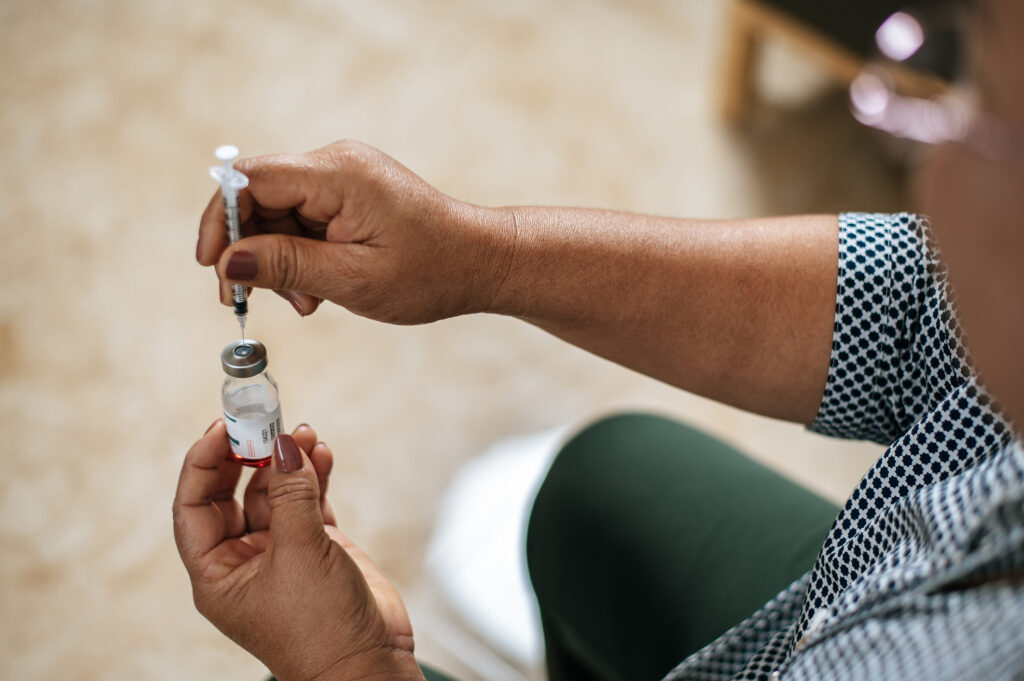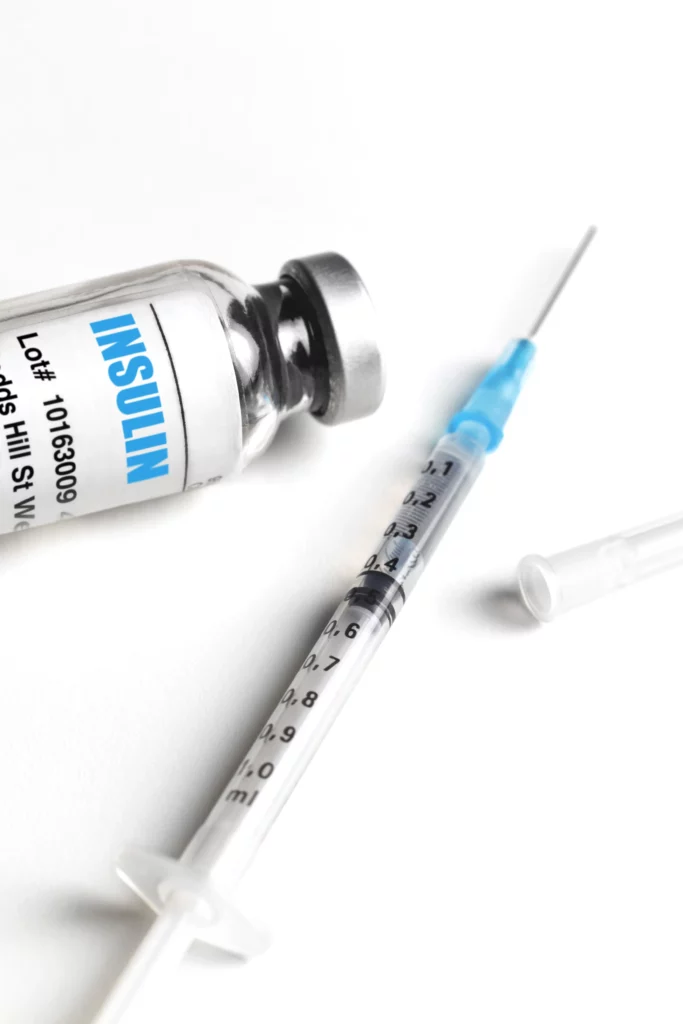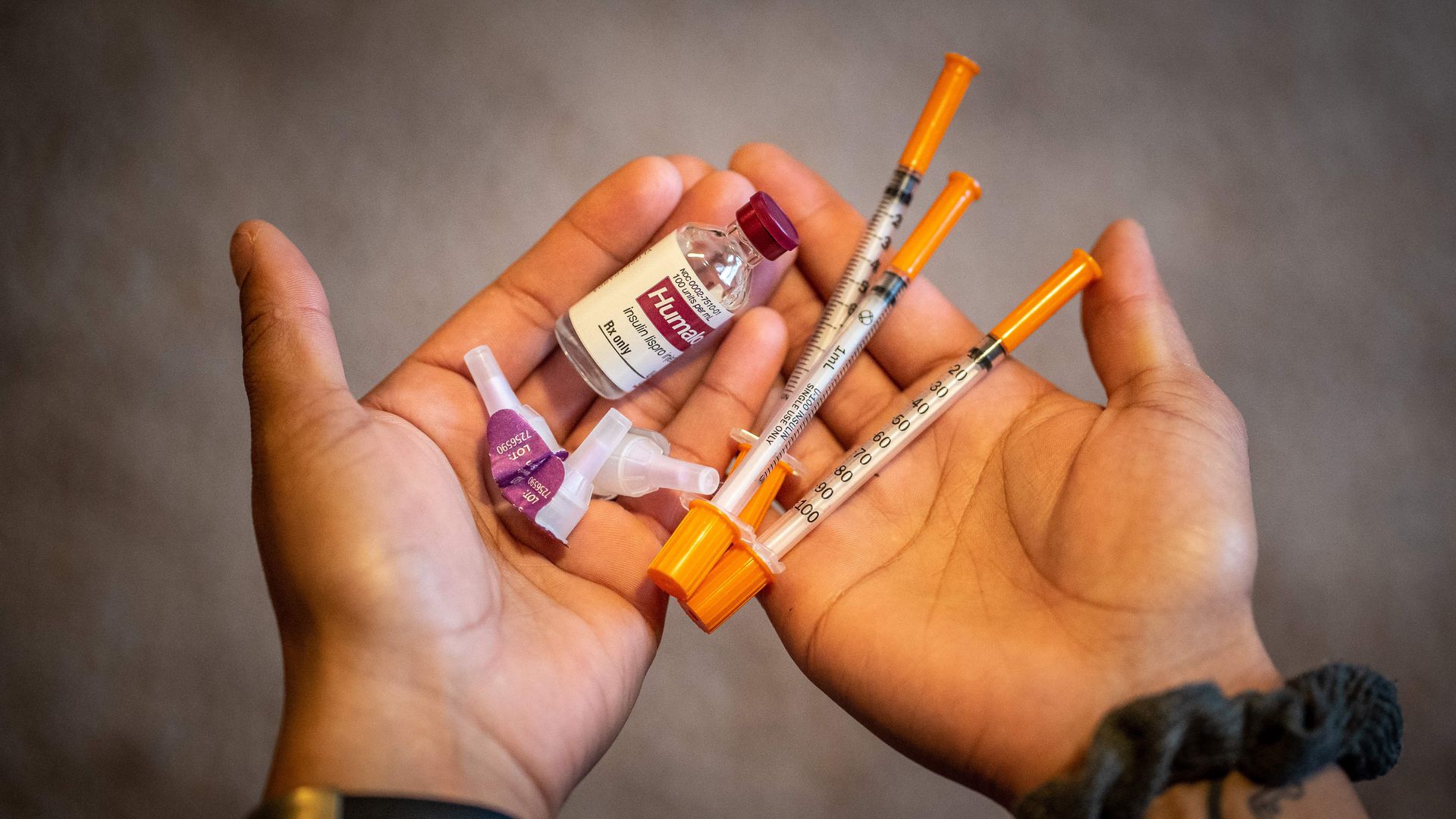Millions of people with type 1 diabetes are left dealing with anxiety, fear and stress, due to the shortage of vital insulin.
What is Insulin?
Insulin, a drug that regulates and controls blood sugar levels, is one of the hundreds of drugs currently hard or impossible to get in the UK. Experts emphasize that a “regular and reliable” supply is “essential for life,” cautioning that shortages will cause “anxiety” for the 400,000 Brits living with type 1 diabetes.
Hilary Nathan, director of policy at the Juvenile Diabetes Research Foundation, explained to MailOnline that any changes to prescriptions or reported shortages of insulin cause significant worry for people.
Insulin is crucial for those with type 1 diabetes, as they must dose themselves with it daily. There are various types of insulin available, each working differently in individuals’ bodies. These variations include the time they take to start working, when they peak, and how long they last.

Some individuals may also find that certain insulins aren’t suitable due to skin sensitivities. Once someone with type 1 finds the right insulin for their lifestyle and learns how to make it work for themselves, which can take time and a lot of adjustments, having a regular and reliable supply becomes essential.
The Department of Health and Social Care (DHSC) confirmed supply issues with a limited number of insulin products, which patients may find distressing.
The public’s reaction to the Insulin Shortage
Several patients went to X, formerly known as twitter, to share their complaints, with one user commenting how he had been unable to access his regular pre-filled Tresiba insulin pen for the last six prescriptions.
Another person, who had to switch insulin supplies, noted that the new insulin was not acting as quickly. As a result, their hybrid closed-loop system, also known as an artificial pancreas that delivers insulin automatically, was experiencing inconsistent performance.
A third individual mentioned they could only pick up one of three insulin vials on their last refill.
Additionally, an NHS doctor, who uses insulin vials in her pump, expressed her concern: “I spent the last two days trying to get hold of insulin to treat my type 1 diabetes. I was terrified when my usual, very reliable pharmacist told me he couldn’t get hold of my insulin. I had no idea that insulin could go out of stock. Type 1 diabetics can fall ill and die within a few days without insulin. I’m worried for fellow diabetics, not only in accessing the supply to stay alive, but also the stress and anxiety this causes.”
She had to call numerous pharmacies before finding one that still had stocks of her usual insulin, Humalog. Eli Lilly, the US firm that manufactures Humalog, reported last month that it and another form of the drug were temporarily out of stock.
The NHS response ensures that they are attempting to handle the shortage
The NHS has aimed to reassure individuals with type 1 diabetes that they can use alternative formulations when their usual product is unavailable. However, a small number of people have faced difficulties due to receiving “inappropriate dosing” advice when they switched. One person, hospitalized with ketoacidosis – a potentially life-threatening side effect of type 1 diabetes – according to a national patient safety alert issued in December.

Pharmacy corporations have also responded, sharing their deep concerns on the situation
Mike Dent, the director of pharmacy funding at Community Pharmacy England, expressed concern: “The impact of medicine shortages on patients and our community pharmacies continues to be a deep concern. It is a battle to keep up with the large number of medicine supply issues.”
“The shortages affecting several medicines, including anti-epileptic drugs, insulins, and certain diabetes treatments are not only affecting the timely dispensing of medications but are also placing huge strain on community pharmacies operationally and financially,” Dent added.
Paul Rees, the chief executive of the National Pharmacy Association, remarked that the scarcity of some insulin products “highlights the precarious nature of medicine supply – even for life-threatening conditions”.
He urged action, saying, “We urgently need the government to sort out the UK’s fragile medicines supply system.”
A DHSC spokesperson stated, “We are aware of supply issues with a limited number of insulin products and are working with the respective manufacturers to help resolve them. We have also issued comprehensive guidance to the NHS about these supply issues, which provides advice on how to manage patients during this time.”
“We understand shortages can distress patients and families, and urge concerned patients to speak to their clinician.”
Thank you for reading, click the link below to read more of our Health Articles:
https://insidesuccessmagazine.com/category/health
Inside Success presents to you our digital platform, created to inform, inspire and empower 16-35s. Through our articles, we aim to bring bold ideas, fresh voices and real conservations to life. From mental health advice, to career information, and fashion tips to social issue debates, Inside Success is proud to have created a platform that has something to cater to everyone.




Leave a Reply
You must be logged in to post a comment.